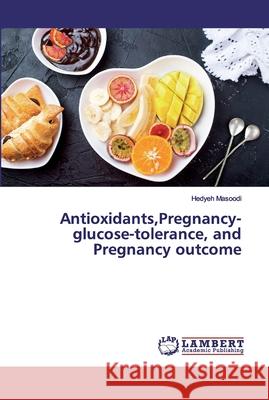Antioxidants, Pregnancy-glucose-tolerance, and Pregnancy outcome » książka
Antioxidants, Pregnancy-glucose-tolerance, and Pregnancy outcome
ISBN-13: 9786200300737 / Angielski / Miękka / 2019 / 84 str.
Lifestyle factors including adverse food habits contribute to increased risk of non-communicable chronic diseases like diabetes. Pregnancy is a period of increased metabolic demands, with changes in the woman's physiology and the requirements of a growing fetus. During this time, inadequate stores or intake of micronutrients can have adverse effects on the mother and fetus. Vitamin C is a nutrient with radical quenching properties and has the capacity to influence glucose tolerance. Oxidant stress could contribute to this association. Diet rich in vitamin C influences glucose homeostasis by preventing pancreatic beta-cell damage from oxidative stress secondary to the progressive increase in hyperglycemia. The role of dietary factors particularly antioxidants in the etiology of gestational diabetes mellitus (GDM) has been given very limited attent. This research aims to compare the clinical and nutritional characteristics of GDM mothers with those of normal glucose tolerant (NGT) mothers. This includes comparing dietary intake and plasma vitamin C concentration, in the two groups and their association with pregnancy outcome and glycemic status.











